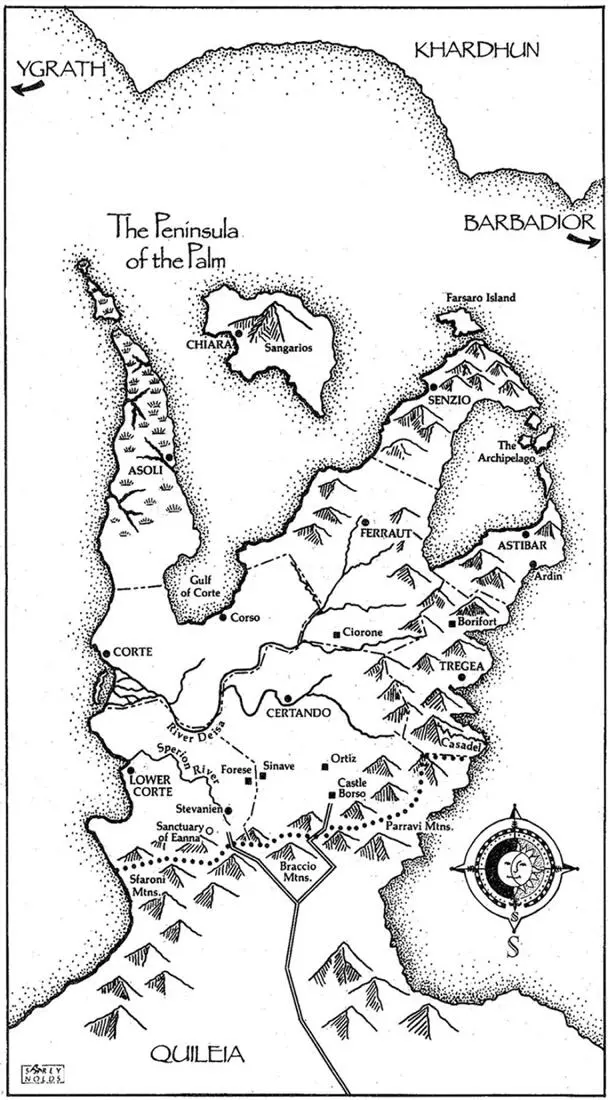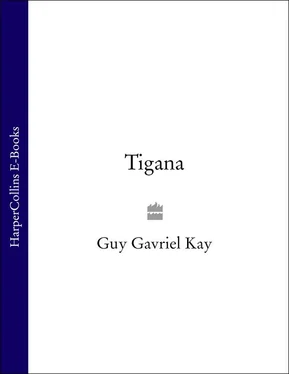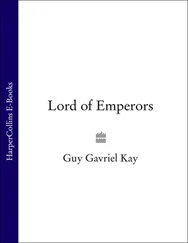GUY GAVRIEL KAY
Tigana
For my brothers, Jeffrey and Rex
Title Page GUY GAVRIEL KAY Tigana
A Note on Pronunciation
Prologue
Part One
Chapter I
Chapter II
Chapter III
Chapter IV
Chapter V
Chapter VI
Part Two
Chapter VII
Chapter VIII
Part Three
Chapter IX
Chapter X
Chapter XI
Chapter XII
Part Four
Chapter XIII
Chapter XIV
Chapter XV
Chapter XVI
Part Five
Chapter XVII
Chapter XVIII
Chapter XIX
Chapter XX
Epilogue
Afterword
Acknowledgments
About the Author
Also by Guy Gavriel Kay
Copyright
About the Publisher Конец ознакомительного фрагмента. Текст предоставлен ООО «ЛитРес». Прочитайте эту книгу целиком, купив полную легальную версию на ЛитРес. Безопасно оплатить книгу можно банковской картой Visa, MasterCard, Maestro, со счета мобильного телефона, с платежного терминала, в салоне МТС или Связной, через PayPal, WebMoney, Яндекс.Деньги, QIWI Кошелек, бонусными картами или другим удобным Вам способом.
A Note on Pronunciation
For the assistance of those to whom such things are of importance, I should perhaps note that most of the proper names in this novel should be pronounced according to the rules of the Italian language. Thus, for example, all final vowels are sounded: Corte has two syllables, Sinave and Forese have three. Chiara has the same hard initial sound as chianti but Certando will begin with the same sound as chair or child .
All that you held most dear you will put by
and leave behind you; and this is the arrow
the longbow of your exile first lets fly.
You will come to know how bitter as salt and stone
is the bread of others, how hard the way that goes
up and down stairs that never are your own.
—Dante, The Paradiso
What can a flame remember? If it remembers a little less than is necessary, it goes out; if it remembers a little more than is necessary, it goes out. If only it could teach us, while it burns, to remember correctly.
—George Seferis, ‘Stratis the Sailor
Describes a Man’

Prologue
Both moons were high, dimming the light of all but the brightest stars. The campfires burned on either side of the river, stretching away into the night. Quietly flowing, the Deisa caught the moonlight and the orange of the nearer fires and cast them back in wavery, sinuous ripples. And all the lines of light led to his eyes, to where he was sitting on the riverbank, hands about his knees, thinking about dying and the life he’d lived.
There was a glory to the night, Saevar thought, breathing deeply of the mild summer air, smelling water and water flowers and grass, watching the reflection of blue moonlight and silver on the river, hearing the Deisa’s murmurous flow and the distant singing from around the fires. There was singing on the other side of the river too, he noted, listening to the enemy soldiers north of them. It was curiously hard to impute any absolute sense of evil to those harmonizing voices, or to hate them quite as blindly as being a soldier seemed to require. He wasn’t really a soldier, though, and he had never been good at hating.
He couldn’t actually see any figures moving in the grass across the river, but he could see the fires and it wasn’t hard to judge how many more of them lay north of the Deisa than there were here behind him, where his people waited for the dawn.
Almost certainly their last. He had no illusions; none of them did. Not since the battle at this same river five days ago. All they had was courage, and a leader whose defiant gallantry was almost matched by the two young sons who were here with him.
They were beautiful boys, both of them. Saevar regretted that he had never had the chance to sculpt either of them. The Prince he had done of course, many times. The Prince called him a friend. It could not be said, Saevar thought, that he had lived a useless or an empty life. He’d had his art, the joy of it and the spur, and had lived to see it praised by the great ones of his province, indeed of the whole peninsula.
And he’d known love, as well. He thought of his wife and then of his own two children. The daughter whose eyes had taught him part of the meaning of life on the day she’d been born fifteen years ago. And his son, too young by a year to have been allowed to come north to war. Saevar remembered the look on the boy’s face when they had parted. He supposed that much the same expression had been in his own eyes. He’d embraced both children, and then he’d held his wife for a long time, in silence; all the words had been spoken many times through all the years. Then he’d turned, quickly, so they would not see his tears, and mounted his horse, unwontedly awkward with a sword on his hip, and had ridden away with his Prince to war against those who had come upon them from over the sea.
He heard a light tread, behind him and to his left, from where the campfires were burning and voices were threading in song to the tune a syrenya played. He turned to the sound.
‘Be careful,’ he called softly. ‘Unless you want to trip over a sculptor.’
‘Saevar?’ an amused voice murmured. A voice he knew well.
‘It is, my lord Prince,’ he replied. ‘Can you remember a night so beautiful?’
Valentin walked over—there was more than enough light by which to see—and sank neatly down on the grass beside him. ‘Not readily,’ he agreed. ‘Can you see? Vidomni’s waxing matches Ilarion’s wane. The two moons together would make one whole.’
‘A strange whole that would be,’ Saevar said.
‘’Tis a strange night.’
‘Is it? Is the night changed by what we do down here? We mortal men in our folly?’
‘The way we see it is,’ Valentin said softly, his quick mind engaged by the question. ‘The beauty we find is shaped, at least in part, by what we know the morning will bring.’
‘What will it bring, my lord?’ Saevar asked, before he could stop himself. Half hoping, he realized, as a child hopes, that his dark-haired Prince of grace and pride would have an answer yet to what lay waiting across the river. An answer to all those Ygrathen voices and all the Ygrathen fires burning north of them. An answer, most of all, to the terrible King of Ygrath and his sorcery, and the hatred that he at least would have no trouble summoning tomorrow.
Valentin was silent, looking out at the river. Overhead Saevar saw a star fall, angling across the sky west of them to plunge, most likely, into the wideness of the sea. He was regretting the question; this was no time to be putting a burden of false certitude upon the Prince.
Just as he was about to apologize, Valentin spoke, his voice measured and low, so as not to carry beyond their small circle of dark.
‘I have been walking among the fires, and Corsin and Loredan have been doing the same, offering comfort and hope and such laughter as we can bring to ease men into sleep. There is not much else we can do.’
‘They are good boys, both of them,’ Saevar offered. ‘I was thinking that I’ve never sculpted either of them.’
Читать дальше













